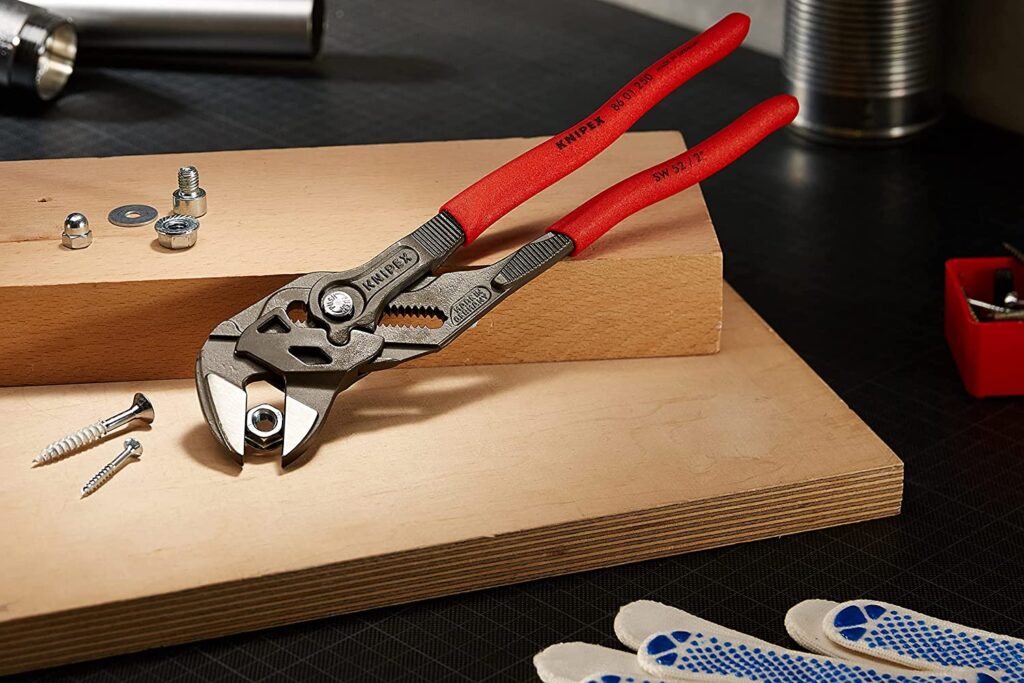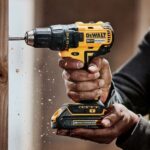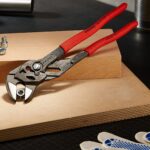If you’ve ever worked with machinery or plumbing, you might have come across a spanner wrench. This handy tool is designed to grip and turn objects that standard wrenches can’t handle. Whether you’re tightening a pipe or adjusting a round nut, a spanner wrench offers the perfect fit and grip for the job.
Understanding what a spanner wrench is and how it works can save you time and frustration on your next project. It’s a versatile tool that comes in different styles to suit various tasks. Knowing when and how to use it will make your work smoother and more efficient.
Understanding What Is a Spanner Wrench
A spanner wrench is a tool designed to grip and turn fasteners that are often round, slotted, or have unique shapes. You use it mainly in situations where regular wrenches can’t secure objects like threaded collars, locknuts, or retaining rings. Spanner wrenches apply force through pins or hooks that fit into the slots or holes on the fastener’s surface, preventing slippage.
You find various spanner wrench types tailored to specific needs, including:
- Pin spanner wrenches: Use pins to engage holes on locknuts or collars.
- Hook spanner wrenches: Employ a hooked arm to grip the flat or round edges of a fastener.
- C-spanner wrenches: Feature an open, C-shaped design for adjustable engagement.
These tools offer precise control over fastener movement and prevent damage that flat or adjustable wrenches might cause on delicate components. When you match the spanner wrench type to the fastener design, you enhance grip strength and ensure efficient torque application.
Types of Spanner Wrenches
You encounter various spanner wrench types designed for distinct fastening challenges. Each type enhances your grip on specific fasteners, ensuring precision and preventing damage.
Pin Spanner Wrench
You use a pin spanner wrench when fasteners have holes or notches. This wrench features two pins that fit into these holes, turning round nuts or locking rings with ease. Its design provides secure engagement without slipping, ideal for delicate or recessed components.
Hook Spanner Wrench
You rely on a hook spanner wrench for fasteners with a notched or grooved outer edge. The hooked end grips these notches to apply torque. This tool suits round nuts, collars, and locknuts, especially in applications needing precise adjustments or controlled force.
Adjustable Spanner Wrench
You select an adjustable spanner wrench for versatility across sizes. Its movable jaw adapts to different fastener diameters, accommodating various round nuts and collars. This wrench combines flexibility with secure grip, minimizing the need for multiple tools in your set.
Common Uses of a Spanner Wrench
You handle a spanner wrench to tighten or loosen round nuts, locknuts, and retaining rings when standard wrenches fail to grip properly. You apply pin spanner wrenches on fasteners with holes or notches, such as machinery collars or bicycle bottom brackets, using the pins to engage securely. You rely on hook spanner wrenches for circular fasteners with notched or grooved edges, common in adjustable bearings and suspension collars, where precise torque application prevents damage. You choose adjustable spanner wrenches for versatility across different fastener sizes, useful in plumbing tasks and equipment assembly where varying diameters appear. You use spanner wrenches in automotive repairs, industrial maintenance, and plumbing systems, including tightening pipe fittings, adjusting machine components, and securing round locknuts. You select the appropriate spanner wrench type to ensure efficient leverage and avoid slippage on fasteners that require specialized engagement methods.
How to Choose the Right Spanner Wrench
Consider the fastener type before selecting a spanner wrench; choosing pin spanner wrenches suits holes or notches, while hook spanner wrenches fit grooved or notched edges. Evaluate the size and shape of the fastener to match with adjustable spanner wrenches if multiple sizes require handling. Assess the torque needs since heavier-duty tasks demand spanner wrenches made from hardened steel or alloy for durability and strength.
Check the wrench’s grip design for comfort and stability, especially if you’ll apply significant force or work in tight spaces. Ensure compatibility with your equipment, which means confirming the wrench fits manufacturer specifications or standards for particular machinery or plumbing fixtures. Opt for wrenches with easy adjustability if frequent size changes occur in your projects to save time and maintain precision.
Verify the tool’s quality through trusted brands or certifications, as low-quality spanner wrenches risk slipping or damaging fasteners. Prioritize ergonomics if extended use is expected to reduce hand strain and improve control over your tasks. Balance cost with functionality, focusing on tools that offer the best performance for your specific needs without unnecessary expense.
Tips for Using a Spanner Wrench Safely
Use the correct spanner wrench type for the fastener to prevent slippage and damage. Inspect your spanner wrench before use to ensure pins, hooks, or jaws are intact and free from wear. Position the wrench securely on the fastener, applying even pressure to avoid slipping. Pull the wrench handle toward you rather than pushing to maintain control and reduce injury risk. Wear gloves with good grip to protect your hands and improve handling, especially when working with oily or greasy components. Keep your work area clean and well-lit to ensure precise tool placement and reduce accidents. Store spanner wrenches properly to maintain their condition and prevent deformation of critical contact points. Replace worn or damaged spanner wrenches promptly to maintain effectiveness and safety during use.
Conclusion
Choosing the right spanner wrench makes your work smoother and more precise. When you match the tool to the fastener and task, you avoid damage and improve efficiency. Keeping your wrench in good condition and using it safely ensures reliable performance every time.
Whether you’re tackling plumbing, machinery, or automotive repairs, having a spanner wrench designed for the job gives you the control and grip you need. With the right knowledge and tools, you’ll handle even tricky fasteners with confidence.
Frequently Asked Questions
What is a spanner wrench used for?
A spanner wrench is used to grip and turn round, slotted, or uniquely shaped fasteners that standard wrenches cannot handle, such as locknuts, threaded collars, and retaining rings.
What are the main types of spanner wrenches?
The main types are pin spanner wrenches (for fasteners with holes/notches), hook spanner wrenches (for notched or grooved edges), and adjustable spanner wrenches (with movable jaws for various sizes).
How do I choose the right spanner wrench?
Consider the fastener’s type, size, shape, torque needs, grip comfort, tool quality, and compatibility with your equipment to select the best spanner wrench for the job.
Can spanner wrenches prevent damage to fasteners?
Yes, spanner wrenches provide a secure grip and precise control, reducing the risk of slipping and damage to delicate or uniquely shaped fasteners.
Are spanner wrenches suitable for plumbing tasks?
Absolutely, adjustable spanner wrenches are especially versatile for plumbing jobs, including tightening pipes and assembling equipment with various fastener sizes.
What safety tips should I follow when using a spanner wrench?
Use the correct wrench type, inspect tools before use, secure the wrench properly on fasteners, apply even pressure, wear gloves, and maintain a clean, well-lit workspace.
How do pin spanner wrenches work?
They have two pins that fit into holes or notches on fasteners, providing a firm grip and allowing you to turn round nuts or locking rings with precision.
Why is tool quality important for spanner wrenches?
High-quality wrenches ensure proper grip, durability, and safety, preventing tool slippage, damage to fasteners, and reducing frustration during use.
How should I store spanner wrenches?
Store them in a dry, organized place to keep them clean and free from damage, and replace any worn or damaged wrenches promptly for safety.
Can I use a hook spanner wrench on all round nuts?
No, hook spanner wrenches are designed for fasteners with notched or grooved outer edges, not all round nuts. Using the right type prevents slippage and damage.


